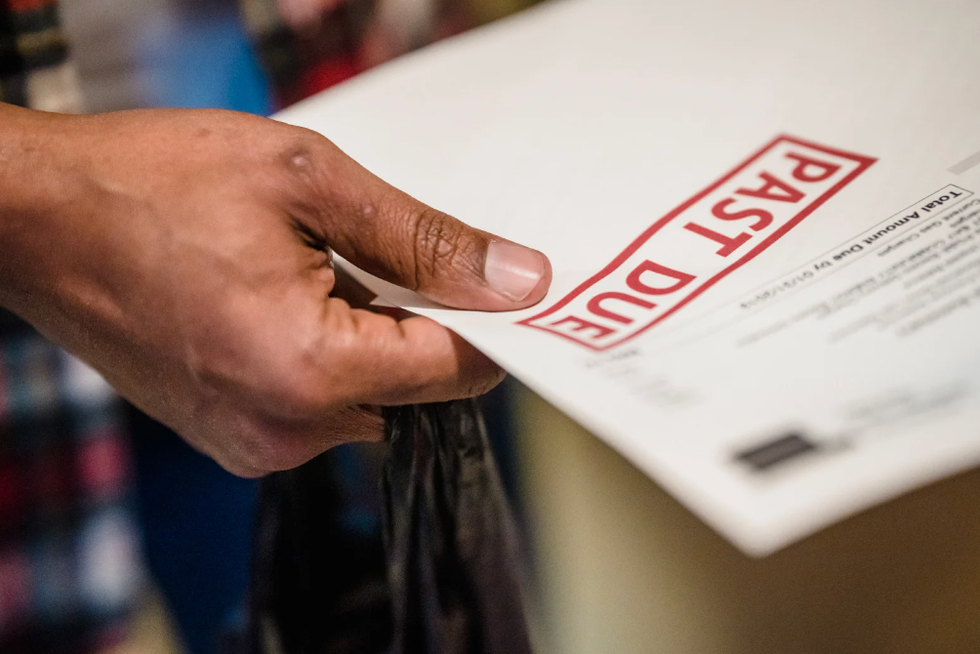It’s not clear exactly why dictionary publishers have taken it upon themselves to point out the bad acts and dishonesty of Donald Trump and his administration, but both Dictionary.com and Merriam-Webster have refused to pull punches in calling out even the loftiest of politicians.
Merriam-Webster has spent some of 2017 offering up the true definitions of words that Trump has misused to suit his own narrative. Dictionary.com made a powerful statement with its 2016 Word of the Year: xenophobia.
Now the online resource is taking a more pointed approach with 2017’s Word of the Year: “complicit.”
In an announcement, the website referred to the word’s relevance to a handful of specific events and also used the rationale that the word was “indicative of larger trends that resonated throughout the year.”
Perhaps most notably, the word was used by Sen. Jeff Flake (R-Arizona) after announcing his retirement from the Senate and urging other party members to cut ties with Trump, stating “I have children and grandchildren to answer to, and so, Mr. President, I will not be complicit.”
Further, Ivanka Trump famously stated in an interview with Gayle King of CBS in early 2017 that she didn’t know what it meant to be “complicit” in the acts of her family.
In the interview, Ivanka took a swing and a miss at the definition of the word, stating, “If being complicit is wanting to be a force for good and to make a positive impact, then I’m complicit.”
The word has recurred in many notable instances, chiefly political, to such an extent that the decision-makers at Dictionary.com couldn’t find a more suitable word for the distinction.
“This year a conversation that keeps on surfacing is what exactly it means to be complicit,” lexicographer Jane Solomon said in a statement. “Complicit has sprung up in conversations about those who speak out against powerful figures in institutions, and those who stay silent.”
















 Take home pay is becoming less and less as expenses rise year after year.Photo credit: Canva
Take home pay is becoming less and less as expenses rise year after year.Photo credit: Canva Making bill payments gets harder each year.Photo credit: Canva
Making bill payments gets harder each year.Photo credit: Canva




 Representative Image Source: Pexels | Olly
Representative Image Source: Pexels | Olly Representative Image Source: Pexels | Pixabay
Representative Image Source: Pexels | Pixabay Representative Image Source: Pexels | Cottonbro
Representative Image Source: Pexels | Cottonbro Representative Image Source: Pexels | Cottonbro
Representative Image Source: Pexels | Cottonbro Representative Image Source: Pexels | Karolina Grabowska
Representative Image Source: Pexels | Karolina Grabowska Representative Image Source: Pexels | Jonathan Borba
Representative Image Source: Pexels | Jonathan Borba Image Source: Reddit |
Image Source: Reddit |  Image Source: Reddit |
Image Source: Reddit |  Image Source: Reddit |
Image Source: Reddit | 
 Representative Image Source: Pexels | Pixabay
Representative Image Source: Pexels | Pixabay Representative Image Source: Pexels | Pixabay
Representative Image Source: Pexels | Pixabay Representative Image Source: Pexels | markus winkler
Representative Image Source: Pexels | markus winkler
 Representative Image Source: Pexels | Shvets Production
Representative Image Source: Pexels | Shvets Production Representative Image Source: Pexels | Oleksandr P
Representative Image Source: Pexels | Oleksandr P Representative Image Source: Pexels | Photo by Spencer Selover
Representative Image Source: Pexels | Photo by Spencer Selover Representative Image Source: Pexels | JSME Mila
Representative Image Source: Pexels | JSME Mila